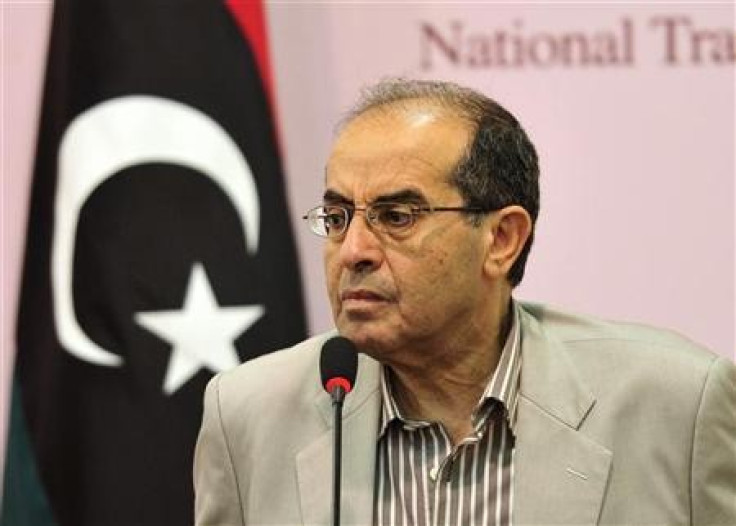Conflict In Libya: Will the New Government Gain Internal and Not Only External Support?

Despite infighting between pro and anti Gaddafi troops still on-going, interim Prime Minister Mahmood Jibril has announced Libya will name a new government within 10 days, as the National transitional Council (NTC) attempts to make clear political progress in a country deeply fractured by months of conflict that overthrew former leader Muammar Gaddafi.
"I expect the government to be announced in the next week to 10 days maximum," Jibril said after a G8 conference on aiding Arab countries' transition to democracy taking place on the sidelines of the U.N. General Assembly in New York.
"I'm not bothered by the time consumed to bring about a national consensus," he said.
While the announcement provides hopes that the NTC is still trying to stick to its well-publicised transitional plan aiming at establishing a stable and democratic Libya, it is still based in Benghazi and discussions to form a more inclusive interim government have previously failed to come to fruition.
Challenges ahead are numerous and the lack of cohesion between the NTC, its fighters on the ground and the rest of the Libyan people have led to questions about whether it can unify a country divided on tribal and local lines.
While Jibril announced the setting up of a new government, very few details about the potential new comers have emerged and in a country divided along tribal lines, only an inclusive cabinet will foster hopes of stability.
By leading a client/patron relationship with his allies within Libya, Gaddafi has provided certain fractions of the population with advantages they will find hard to let go of. With the NTC now in power however, other tribes, previously pushed outside of the domestic political sphere will now expect more political space, rendering the NTC's tasks even more complicated.
However, steering clear of talking about the most difficult challenges ahead, Jibril said interim leaders were currently focused on debating the number of ministries in the new government and whether they would be in Tripoli or divided between eastern and western Libya.
Jabril however admitted that more democratic improvements were needed to make Libya a more transparent state, saying "With this government comes other structures such as an international tendering body to add some sort of transparency and some credibility to the work of the government."
In the wake of the formation of a new government the African Union has also softened its attitude towards the NTC, announcing it will support the interim government.
South Africa, which had until now refused to recognise the government has now done a U-turn by revealing it will formally acknowledged the NTC.
Despite increasing international support, internal support is somehow still fragile as despite days of fighting, Sirte, Gaddafi's birthplace and Bani Walid are still resisting the NTC's forces.
To add to the rebels' problems, fighters in the front line are now also complaining of a lack of ammunition, accusing the military leadership of not providing enough military equipment.
Also, reports from Tripoli say that the NTC forces arrested four brothers suspected of planning bomb attacks in Tripoli on behalf of Gaddafi.
© Copyright IBTimes 2024. All rights reserved.





